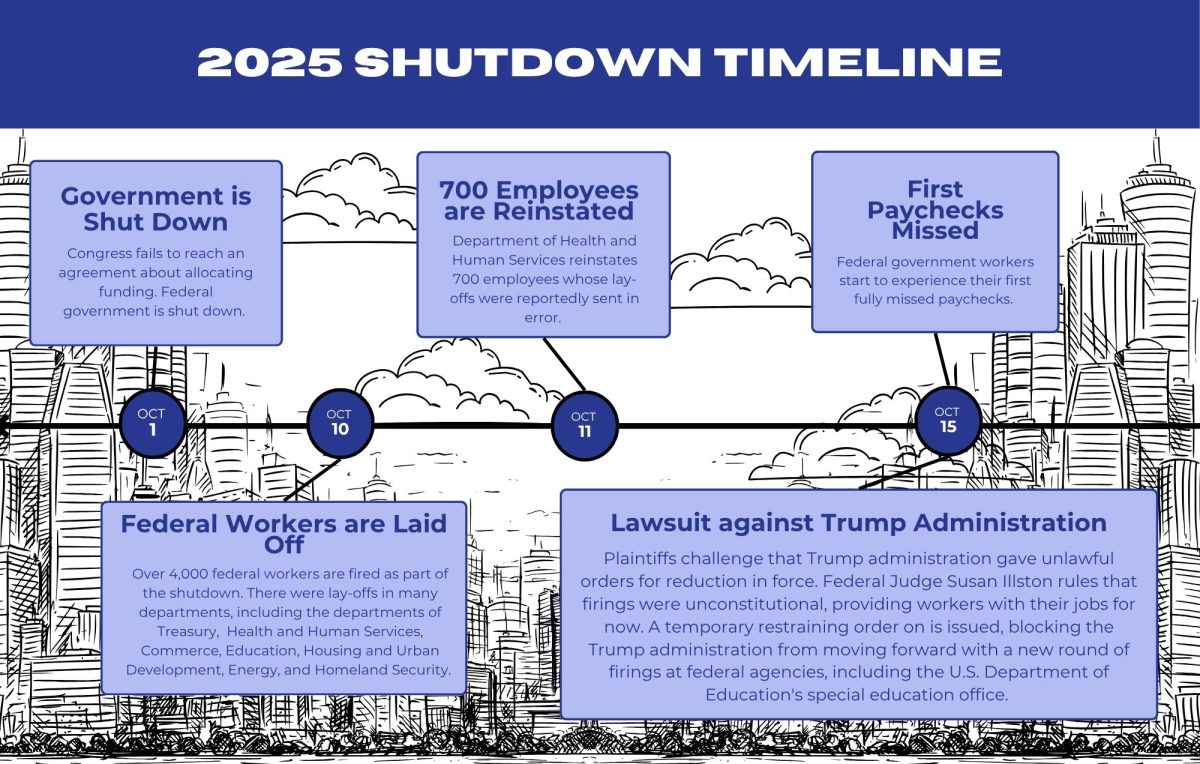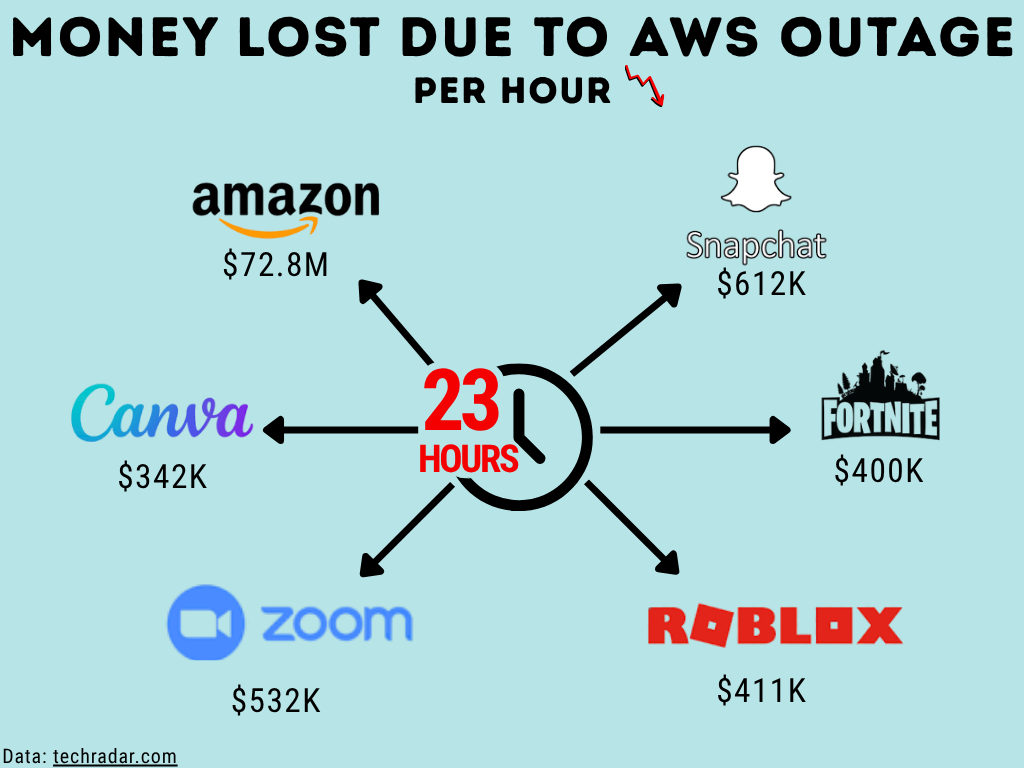The government has now been shut down for 17 days, tying with 1978 and 2013 for the third-longest shutdown in U.S. history, with the longest being 35 days. This is affecting millions of people, federal workers and everyday citizens. The reduction in force movement, or RIF, has begun to result in layoffs for many federal workers.
Funding for many programs is rapidly running out, both directly from the shutdown and indirectly from RIF. The Supplemental Nutrition Assistance Program, commonly known as SNAP, is funded through October. This program provides funds for low-income individuals to buy food. This is provided through loading Electronic Benefit Transfer cards, or EBT. These were also formally known as food stamps. However, if the shutdown persists, it will be up to states to fill in the gaps — if their budget allows it.
The same policy applies to low-to-no-cost school lunches. As of right now, there is funding to continue providing them, but as time passes and the government shutdown persists, there is no guarantee of funding. That being said, there is more of an effort to find funding for school lunches than to continue SNAP benefits.
On Oct. 10, 460 workers were cut from the U.S. Department of Education. That is one-fifth of the workers in the department, which already faced lay-offs in March. These lay-offs hit the portion of the department that specializes in Special Education the hardest.
“The agency laid off just about every employee who works to administer funding for the Individuals with Disabilities Education Act, or IDEA, the primary federal law supporting students with disabilities,” said USA Today in its coverage.
However, on Oct. 15, Federal Judge Susan Illston of the Northern District of California ruled that the firings were unconstitutional, restoring the workers to their jobs at this time. Although the employees were informed of their new employment status late last week, they were not scheduled to take effect for two months. Historically, rulings similar to this one have been challenged.
Furloughed workers have now missed their first paycheck since the government shutdown. This includes all essential federal workers. However, President Donald Trump gave permission — without Congress — to the defense secretary to repurpose unused research funds to provide military personnel with a paycheck.
Due to essential federal workers not currently receiving pay, TSA lines and waits for flights have been significantly longer than usual in airports. According to Travel and Leisure, “As of Tuesday afternoon (Oct. 7), there were just over 1,300 flights delayed within, into, or out of the United States and just over 30 cancellations.” While TSA agents are still required to work during the shutdown, there has been an increase in workers calling out sick and having unscheduled absences. The inadequate staffing causes a backup when the workers cannot keep up with the travelers.
Additionally, National Parks are beginning to experience the effects of the shutdown. National Park workers are not considered essential workers; therefore, they are not expected to show up to work. One issue this causes is a lack of maintenance for utilities such as bathrooms. Unless workers show up on their own account, bathrooms will not be cleaned or restocked, a major inconvenience to park visitors. Instead of many parks requiring some kind of reservation, which are usually required in order to contain the number of visitors in the parks, people are able to just enter the parks. Without workers to check or require reservations, parks can easily get more crowded than usual.
All of these consequences from the government shutdown beg the question: when will it end? Unfortunately, that answer is currently unknown. The House of Representatives is on recess from Oct. 14 until Oct. 19. As of Oct. 15, the Senate has failed to pass a vote nine times. When asked, both democratic and republican candidates are unsure of the end of the government shutdown.
“We’re barreling toward one of the longest shutdowns in American history,” the leader of the House of Representatives said.










